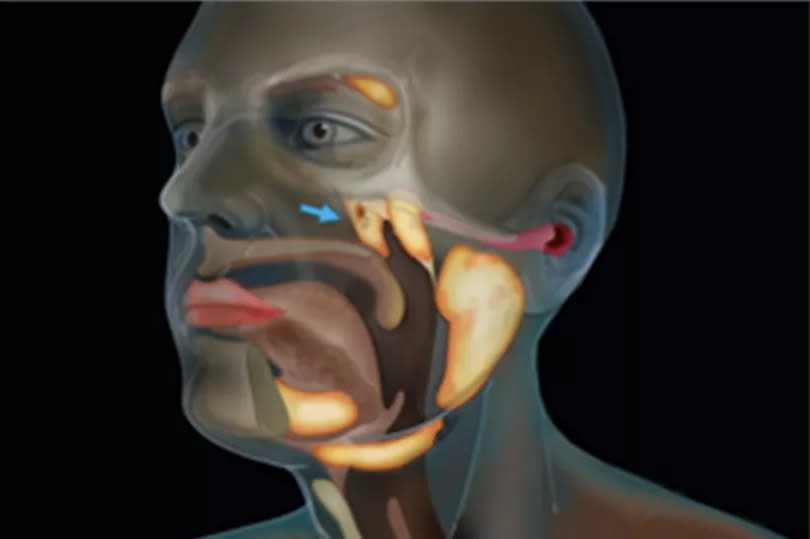Cancer scientists discover new human organ

Scientists have stumbled upon a new human organ while conducting cancer research. Researchers from the Netherlands, who were delving into prostate cancer, made an unexpected discovery of an organ situated at the opposite end of the body.
The team from the Netherlands Cancer Institute was performing CT and PET scans on patients injected with radioactive glucose, a substance that highlights tumours by causing them to illuminate on scans due to the protein PSMA, commonly present in prostate cancer cells. Interestingly, this protein also lights up saliva glands, and during their examinations, the researchers noticed additional glowing spots within the human head.
Upon further investigation, they identified what they've termed the "tubarial salivary gland," found behind the nasal passage near where it meets the throat, just at the back of the face. It is thought that this gland's purpose is to moisten the upper part of the throat behind the nose and mouth, reports the Express US.
After scrutinising 100 patients, the scientists confirmed that each one possessed the newly named "tubarial salivary gland." There are three other significant salivary glands in the human body, all located within the head region.
The primary ones are the parotid glands, which produce saliva crucial for chewing and swallowing food. Additionally, there are the submandibular glands under the lower jaw, which contribute the majority of saliva found in the mouth. Lastly, the sublingual glands, located beneath the tongue, assist in the process of eating food.

 Yahoo News
Yahoo News 
